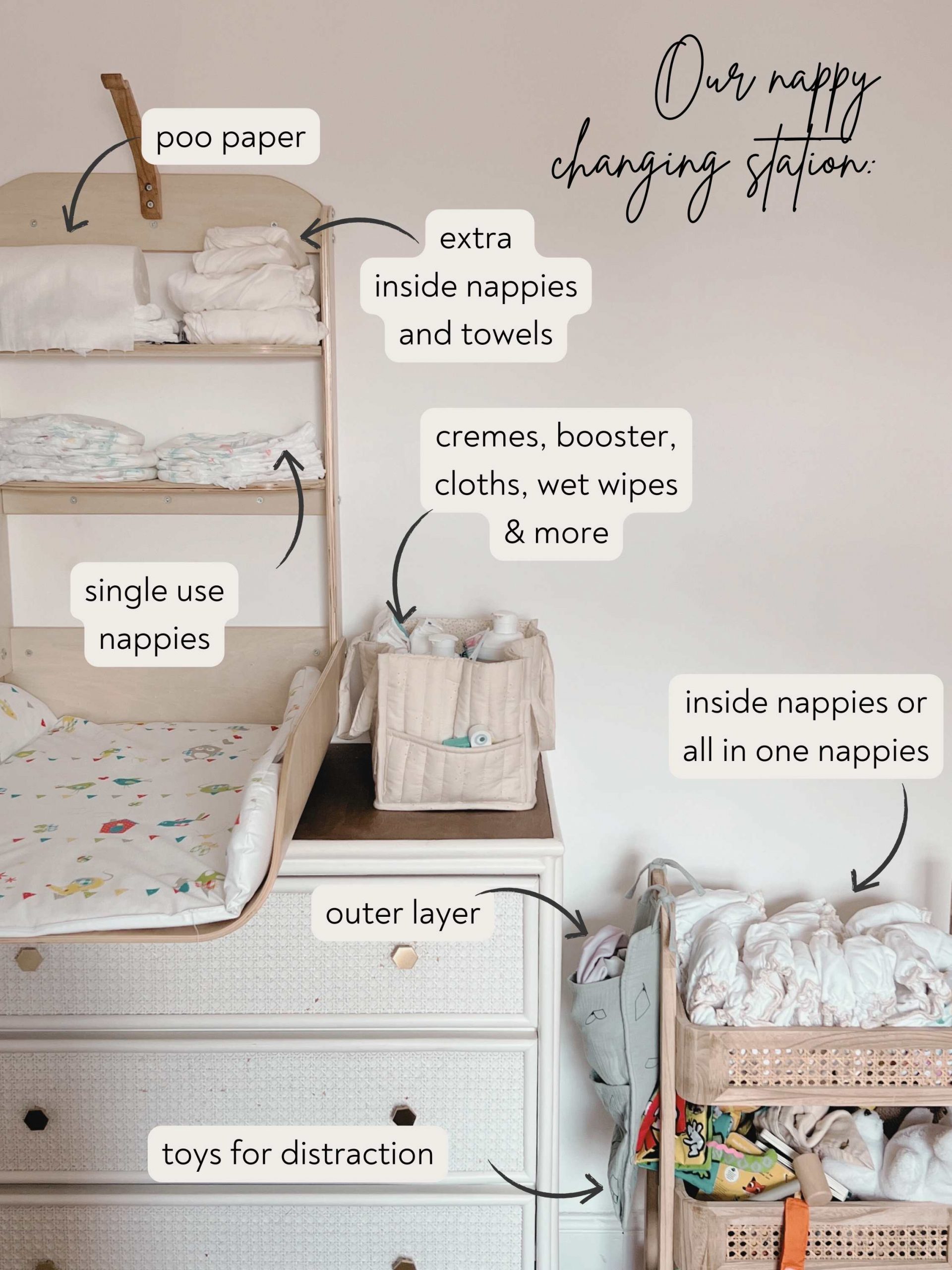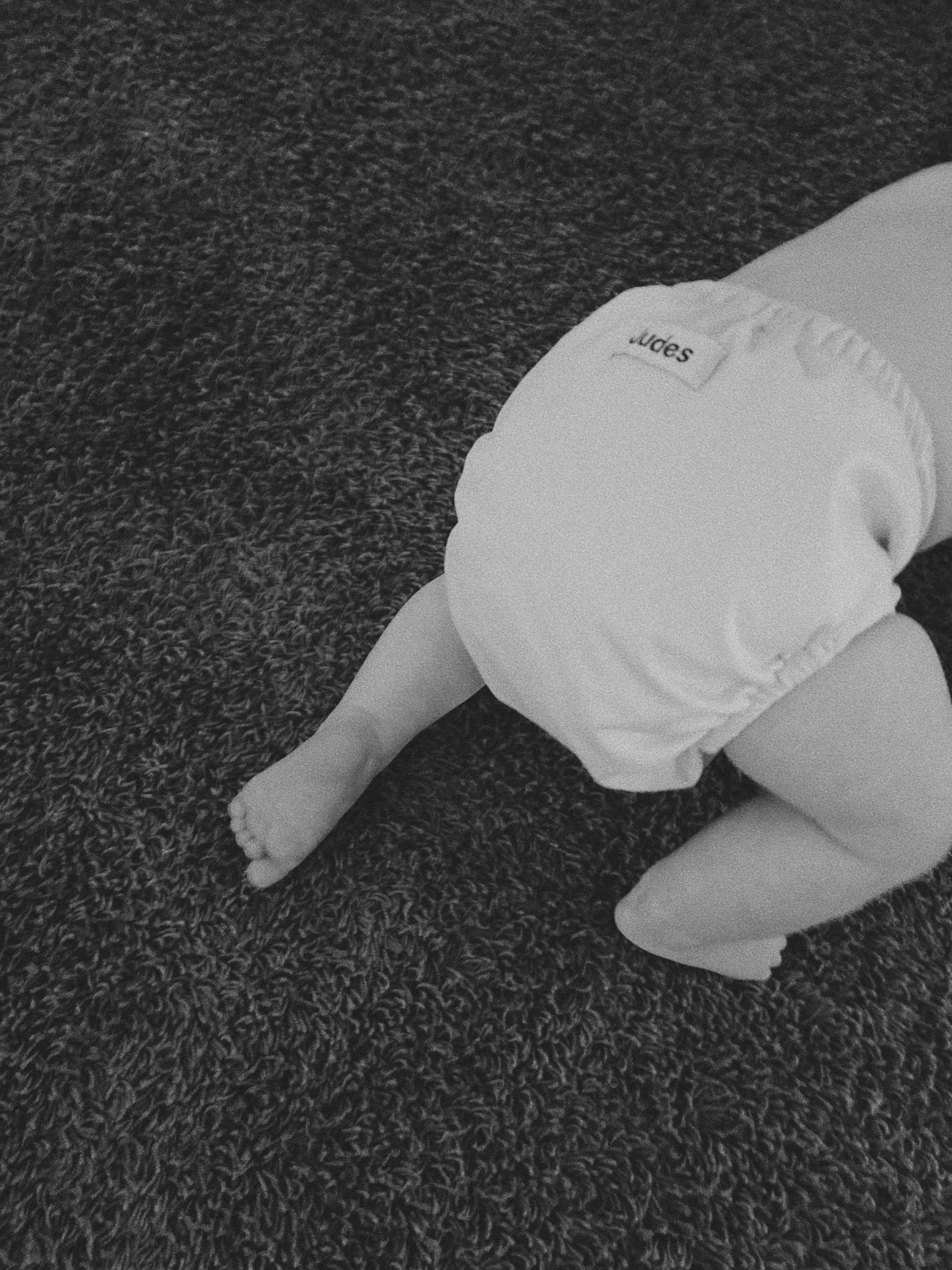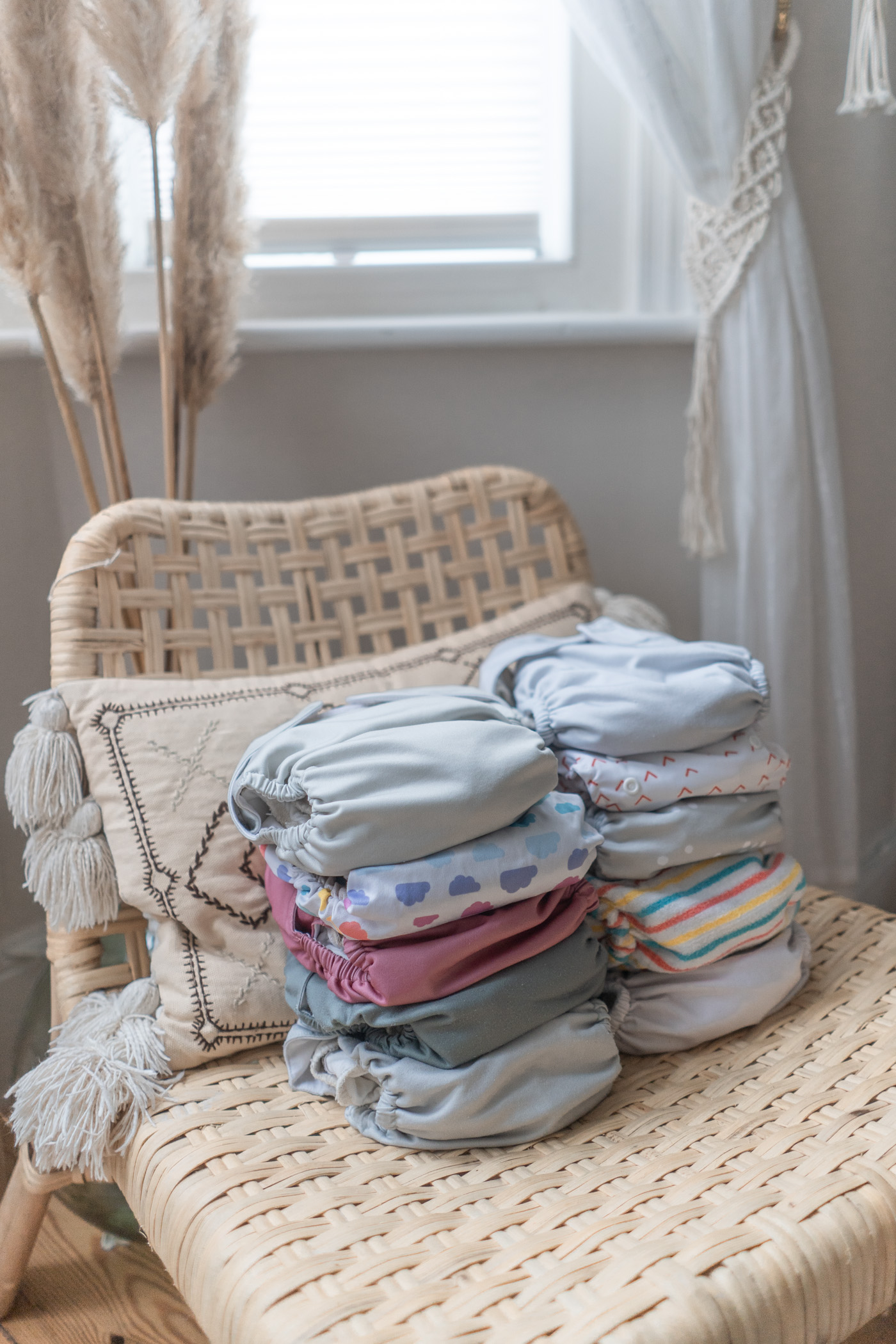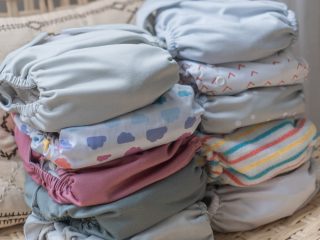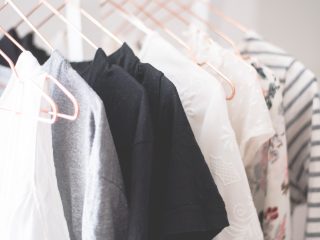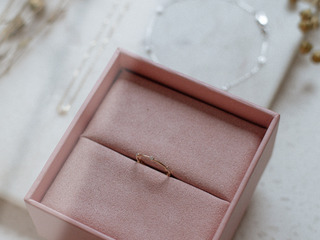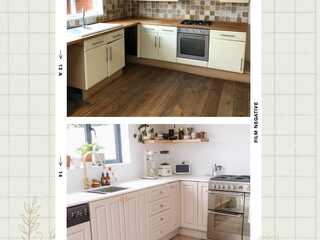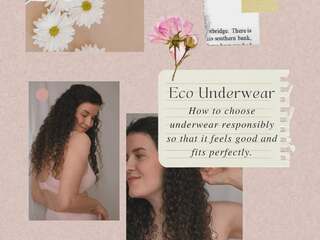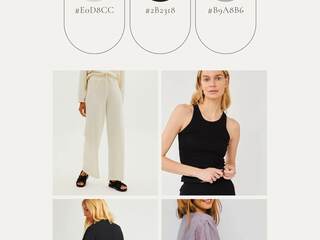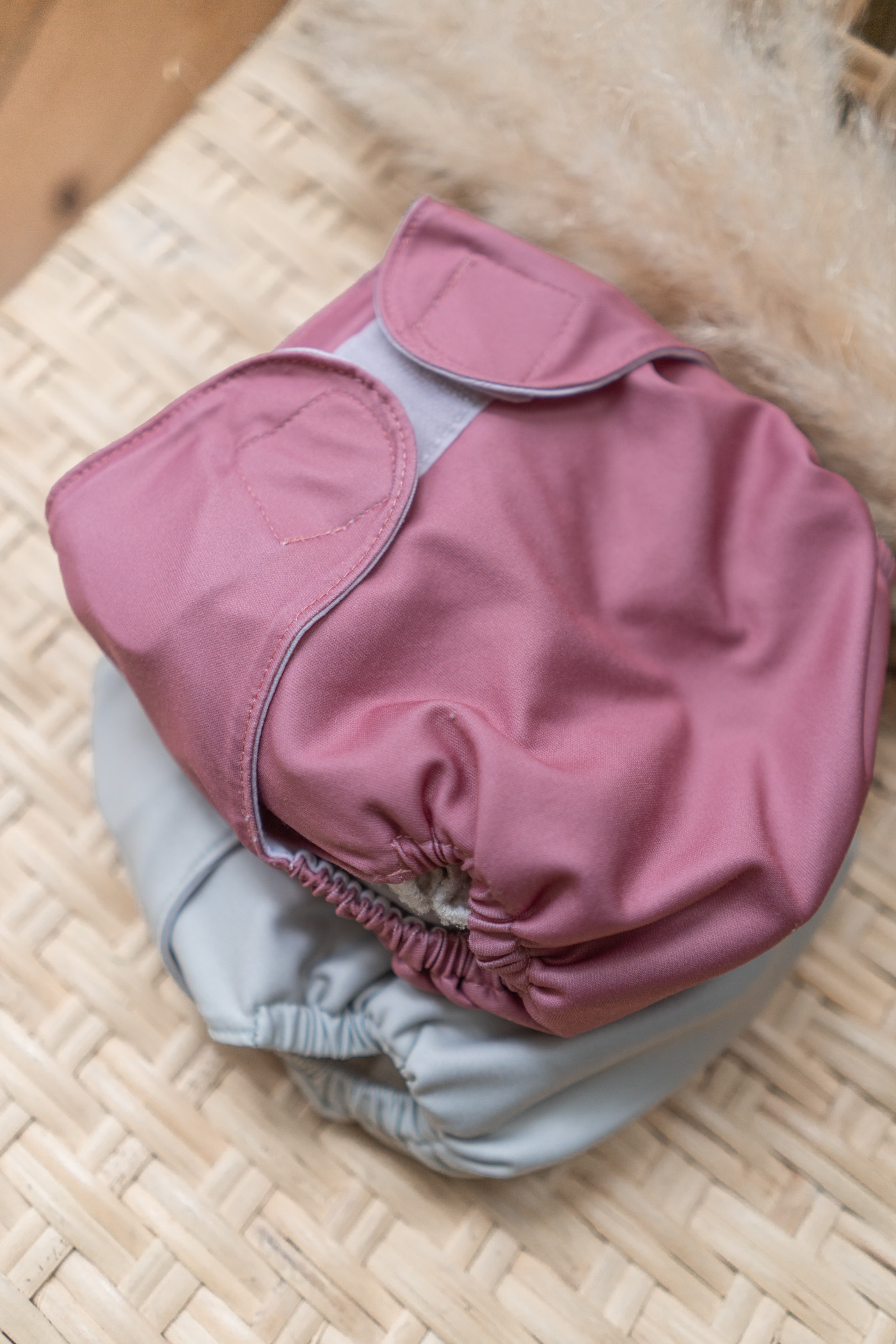
Cloth nappies instead of disposables? Yeah, it might sound a bit challenging at first, but I would recommend everyone to at least try it. For about a year now, I’ve been on the eco-friendly bandwagon. By now, I have decent practice and can review a few popular brands. And I’ll be totally honest, I’ve got some pros, but also some big cons, to report. I want to give you an honest glimpse:
What are the pros and cons of the different models? How does it all work exactly? Would I recommend it? Aren’t disposable nappies way easier? What do you do when travelling? Do they leak a lot? What do you do with the dirty ones?
Whether you’re new parents stocking up or thinking of switching to cloth for an older baby – I’ll fill you in on all the pros and cons of this sustainable nappy alternative!
But first things first: what actually are cloth nappies? And are they really more sustainable than disposables?
Unlike disposable nappies made of plastic and wood pulp, reusable cloth nappies consist of absorbent natural fibers like cotton or bamboo that can be washed and re-used. This produces much less waste long-term compared to plastic nappies. However, there’s a debate around whether cloth nappies are truly more sustainable since their production uses resources and frequent hot washing isn’t eco-friendly.
A quick fact check:
- Reusable cotton nappies require regular hot wash cycles, but have a lower carbon footprint than disposables if washed at 50-60°C in an efficient machine.
- Reusables allegedly have 25% less global warming potential, with manufacturing and disposal impacts 9-10x higher for disposables.
- However, reusables score worse for water/electricity use from washing/drying. This can be reduced by using efficient washers, air drying, re-using for another child, or buying secondhand.
- However, experts don’t fully agree on how sustainable cloth nappies really are and the best way to make them accessible and environmentally-friendly for families.
For me, the biggest motivation is how quickly disposable nappies fill up our trash. But every family’s situation is different – time, space, upfront costs, lifestyle etc. It may not be the right choice for everyone. I recommend trying a starter pack to see if cloth works commitment-free.
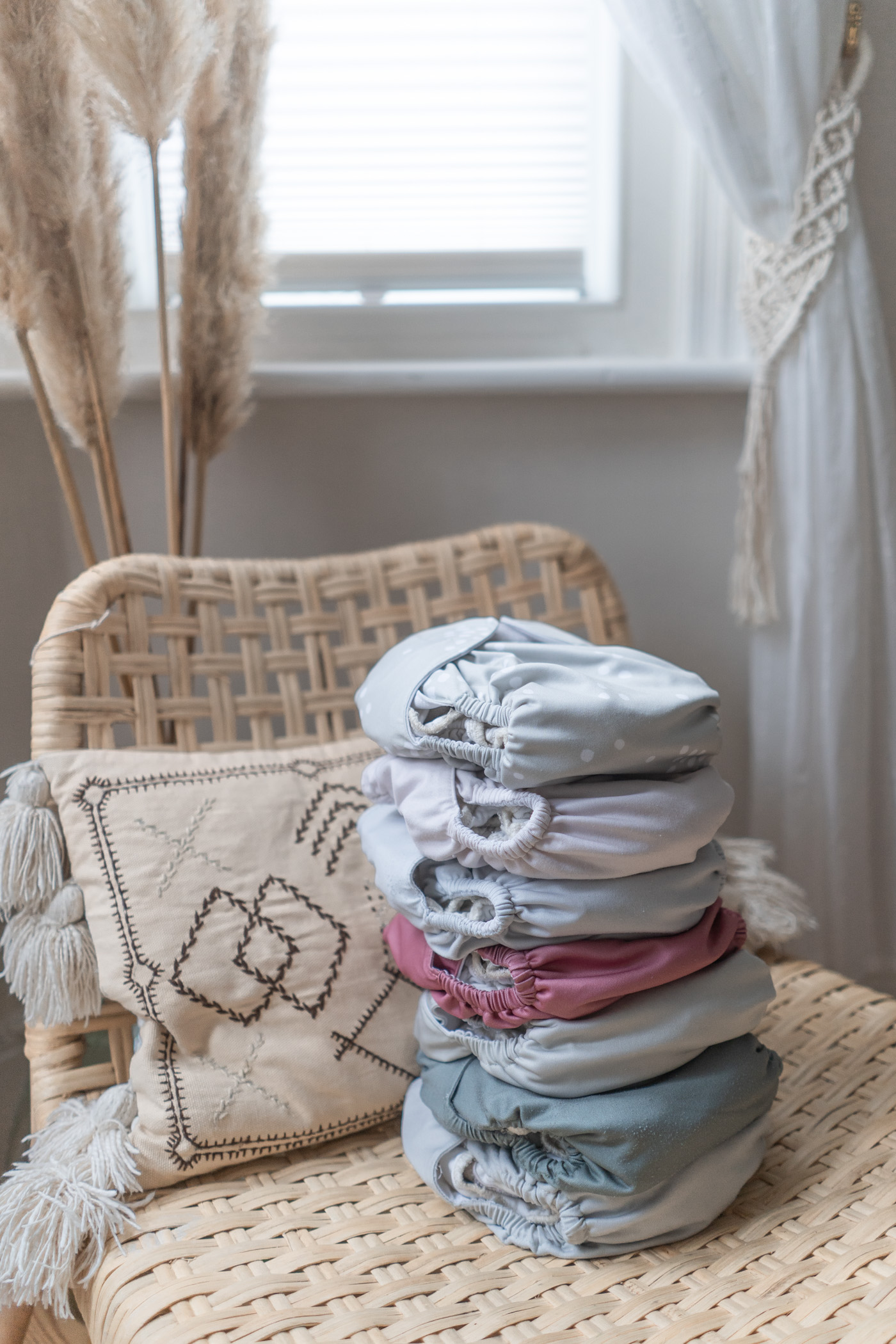

 Deutsch
Deutsch
